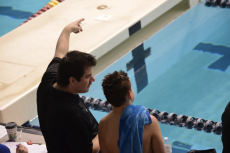Unintended Deaths Soar in NSW Shark Net Program
Newly released documents have shed light on the divisive nature of the shark net program along New South Wales (NSW) beaches, revealing that over 90% of marine animals caught during summer were unintended species. The data, obtained by conservationists under the state’s information access laws, underscores a growing concern over the effectiveness and ethical implications of the controversial initiative.
According to the findings, more than half of the 208 non-target species ensnared in the nets over the past eight months met a grim fate, with 134 animals, including critically endangered grey nurse sharks and leatherback turtles, among the casualties. The figures, made public as the nets were removed for the season, highlight the significant toll the program exacts on marine biodiversity.
Few released alive
Of the non-target animals caught, only 36% were successfully released back into the ocean alive, further fuelling criticism of the program. Despite the intended purpose of safeguarding against shark attacks, the nets predominantly captured non-target species, with only fifteen target animals, including tiger sharks and great whites, caught during the period.
Controversy grows
Government documents reveal a rift within the administration over the program's continuation. The Department of Primary Industries (DPI) acknowledged the inevitability of non-target species catches due to the nets' design, describing them as a "key threatening process" due to the significant impact on by-catch. The revelation contradicts earlier promises of considering feedback from coastal councils before implementing the nets, indicating a lack of transparency in decision-making processes.
While the government spokesperson refuted claims of offering councils the chance to opt out of the program, Environment Minister Penny Sharpe privately expressed support for ending the use of shark nets. In correspondence with Agriculture Minister Tara Moriarty, Sharpe advocated for collaborative efforts with local councils to phase out the nets, citing the empowerment of communities to choose alternative shark protection measures.
More action needed
Andre Borell of the Envoy Foundation, who obtained the documents, urged for more substantial action from government officials, emphasizing the need for public advocacy for environmental conservation. The revelation underscores the ongoing debate surrounding the NSW shark net program, prompting calls for a reevaluation of its methods and a shift towards more sustainable and species-friendly alternatives.















































